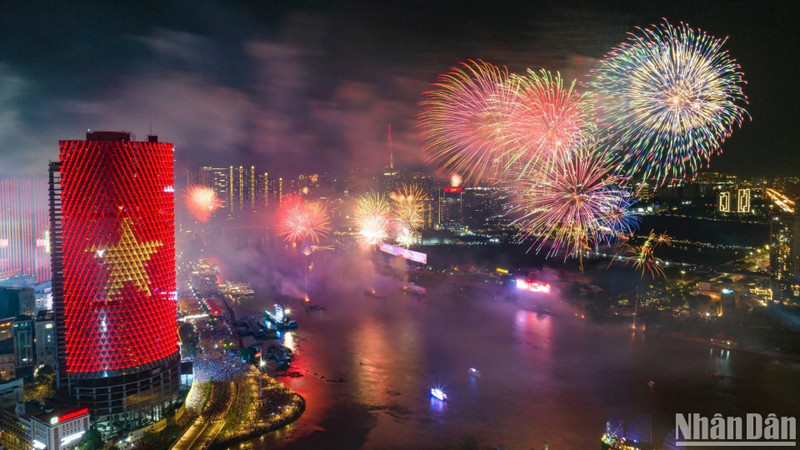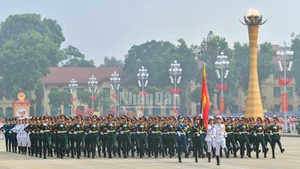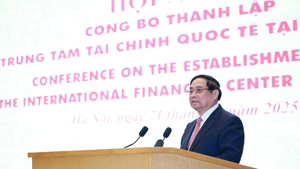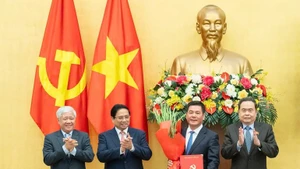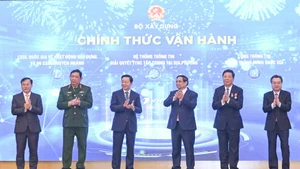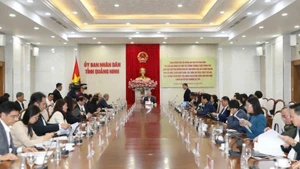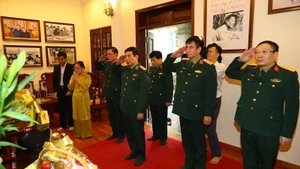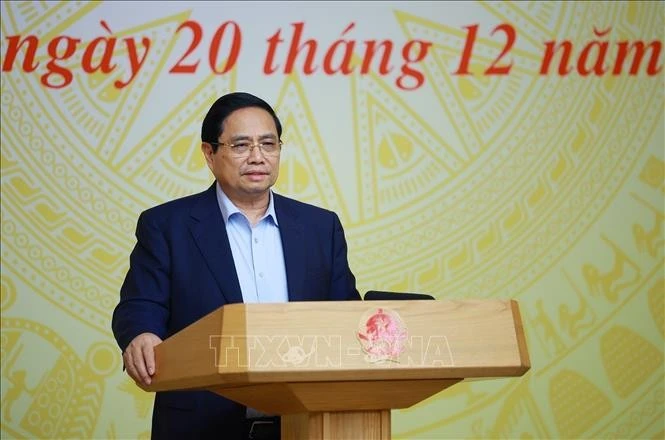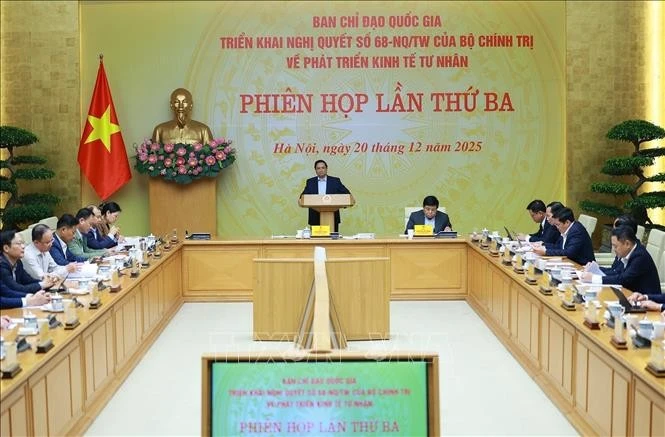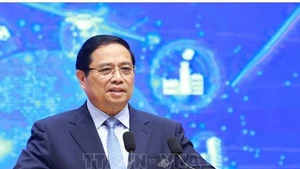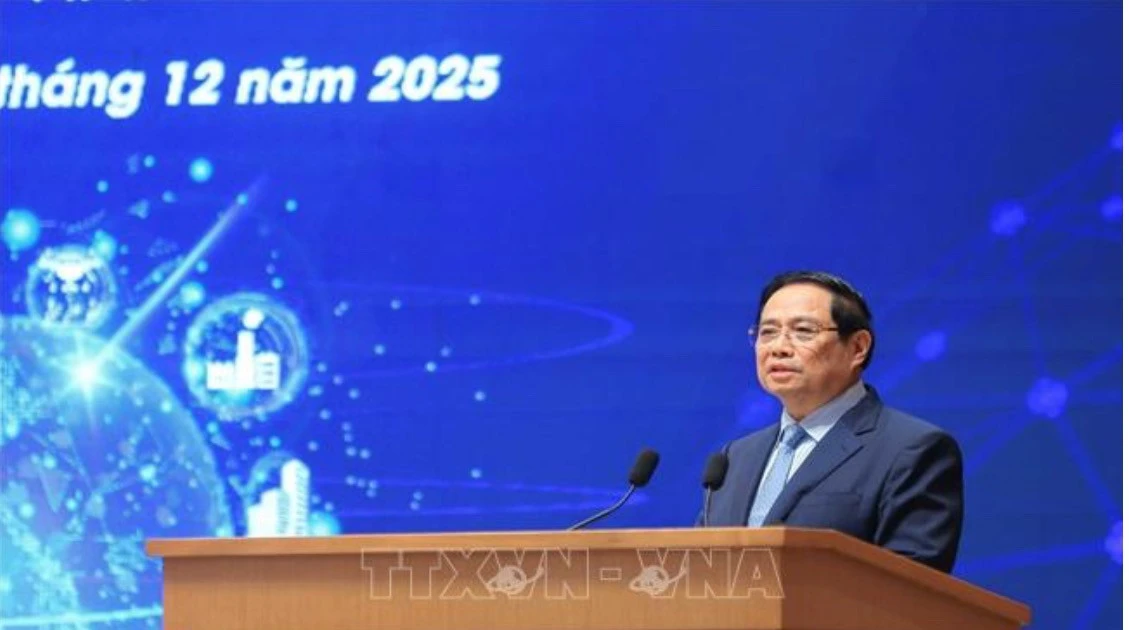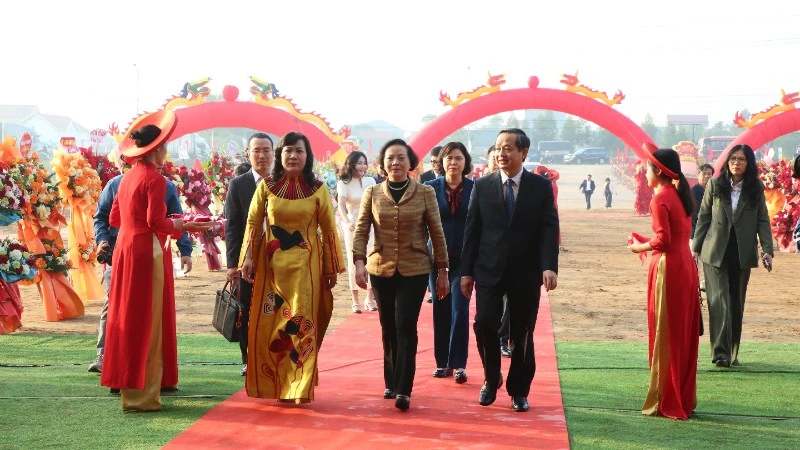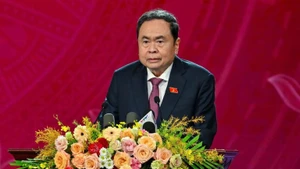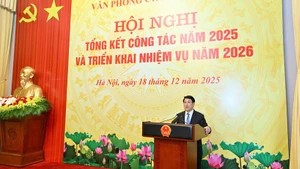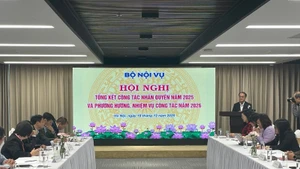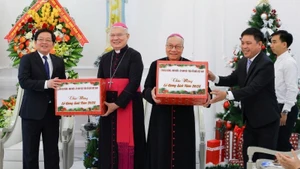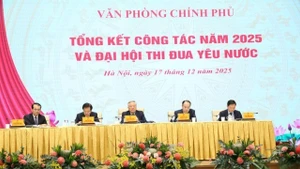President Ho Chi Minh believed in the victory of the Vietnamese revolution despite the countless difficulties the country faced. This belief was based on Marxism-Leninism being creatively applied and developed to fit the specific circumstances of the country. He placed firm trust in the strength of Viet Nam, a nation with a long tradition of patriotism and revolution, where people were ready to follow the Party to fight successfully for national independence and for everyone’s freedom and happiness.
Viet Nam is entering a new era of development with aspirations to become a powerful nation, realising “the final wish” of President Ho Chi Minh in his Testament: “Our entire Party and people shall unite and build a peaceful, unified, independent, democratic and prosperous Viet Nam, and make a worthy contribution to the world revolutionary cause.” It is also an aspiration for innovation and creativity, bringing Viet Nam to a position of glory alongside the great powers of the world.
We must transform developmental aspirations and beliefs into reality with great determination in order to achieve the goals set by the 13th Party Congress for 2030 and 2045. This determination must be based on the consensus, unity, and cohesion of the political system and the entire people, combining national strength with the strength of the era. If we do not resolutely transform aspirations into reality, if we do not turn belief into positive action, then aspirations and beliefs will merely be fanciful and voluntaristic.
Therefore, we must overcome four phenomena: talking much but doing little, speaking well but performing poorly, speaking without acting, saying one thing but doing another — which President Ho Chi Minh noted regarding “the qualities of a revolutionary” in his 1927 work “Revolutionary Path”: “Saying must be accompanied by doing”; and as he told representatives of intellectuals and wealthy elites of Thanh Hoa Province on February 20, 1947: “Roll up your sleeves and get to work.”
The will and action in the new era must continue President Ho Chi Minh’s determination that he demonstrated in the national liberation revolution: “Whatever the sacrifice, even if we must burn the entire Truong Son range, we must resolutely achieve independence.”
That is the determination: “Nothing is difficult, Only fear of inconstant hearts, Digging mountains and filling seas, With resolve, success will come.” That is the determination to liberate the south: “As long as a single invader remains on our land, we must continue fighting to sweep them away completely.” That is: “Nothing is more precious than independence and freedom. On the day of victory, our people will rebuild our country to be more dignified and more beautiful!” and so on.
After nearly 40 years of reform, Viet Nam must resolve to advance more rapidly and more steadily, addressing most actively and vigorously the risk of falling increasingly behind many countries in the region and the world.
Under the guidance of the Central Committee, ministries, sectors and localities throughout the country are urgently implementing the revolution to continue reforming and reorganising the apparatus of the political system. Reorganisation of the apparatus inevitably goes hand in hand with reducing units, personnel and leadership positions. This directly affects each individual and unit in terms of status and authority, especially material benefits.
President Ho Chi Minh often emphasised that the interests of the revolution must be placed above all else. He regarded individualism as a very toxic bacterium; they are truly dangerous to the extent that: “A nation, a party, and each person, who was great yesterday, with strong appeal, will not necessarily be loved and praised today and tomorrow if their hearts are no longer pure, if they fall into individualism.”
The requirement in reorganising the apparatus is that the pace must be quick, the rhythm urgent, but effectiveness and efficiency must be ensured; the system must be lean, compact and strong. The goal must be: making the apparatus and organisation streamlined to advance more strongly; making the political system operate more effectively and efficiently; and making the members of the political system have clear functions and duties, without overlap. This is truly a revolution, a mandate of life. This is also an effective solution for bringing Ho Chi Minh’s ideology into life.
President Ho Chi Minh paid great attention to Party building and rectification, desiring our Party to be “ethical and civilised”. The correct leadership of the Party is the primary factor ensuring the victory of the revolution.
President Ho Chi Minh became the first Vietnamese communist at the 18th Congress of the French Socialist Party and was a founding member of the French Communist Party in late 1920. He presided over the founding conference of our Party in early 1930. He was the founder of the Democratic Republic of Viet Nam in 1945. He was the strategist in organising the United National Front during various periods of the Vietnamese revolution. He was the founder of the Vietnamese revolutionary armed forces. He was a resolute fighter full of mettle for the Communist International and for the world communist movement, workers’ movement, and national liberation movement.
President Ho Chi Minh did not accept any medals from the country, but he was the one who inspired an entire nation to strive for development while contributing to solving global issues. His life and career have become cultural values of the nation, guiding Vietnamese people on a long march for social progress, loving good and hating evil, and his values have been honoured in UNESCO spaces.
Ho Chi Minh’s ideology on Party building and rectification continues to guide the Party’s thinking and actions in the new era. The Party must correctly formulate and lead the successful implementation of the platform, policies, lines, and development decisions of the nation. To do so, according to Ho Chi Minh’s ideology, the Party itself must always be pure, strong, enhancing its leadership capacity, governance and fighting strength, overcoming many obstacles, even many obstacles within the Party itself (such as “self-evolution”, “self-transformation”).
The Party must correctly implement Ho Chi Minh’s ideology regarding the principles of Party building in politics; ideology; ethics; organisation; building the ranks of officials and Party members; strengthening inspection, supervision, and Party discipline; further tightening the close relationship between the Party and the people; resolutely and persistently fighting to prevent and combat corruption, waste and bureaucracy — the trio which President Ho Chi Minh called the “internal invading enemy”; strongly renovating the Party’s leadership methods to suit new conditions.
Ho Chi Minh’s ideology always moves with the times, forever a guiding flag for the cause of renovation, realising the aspiration for developing a prosperous and happy country.
